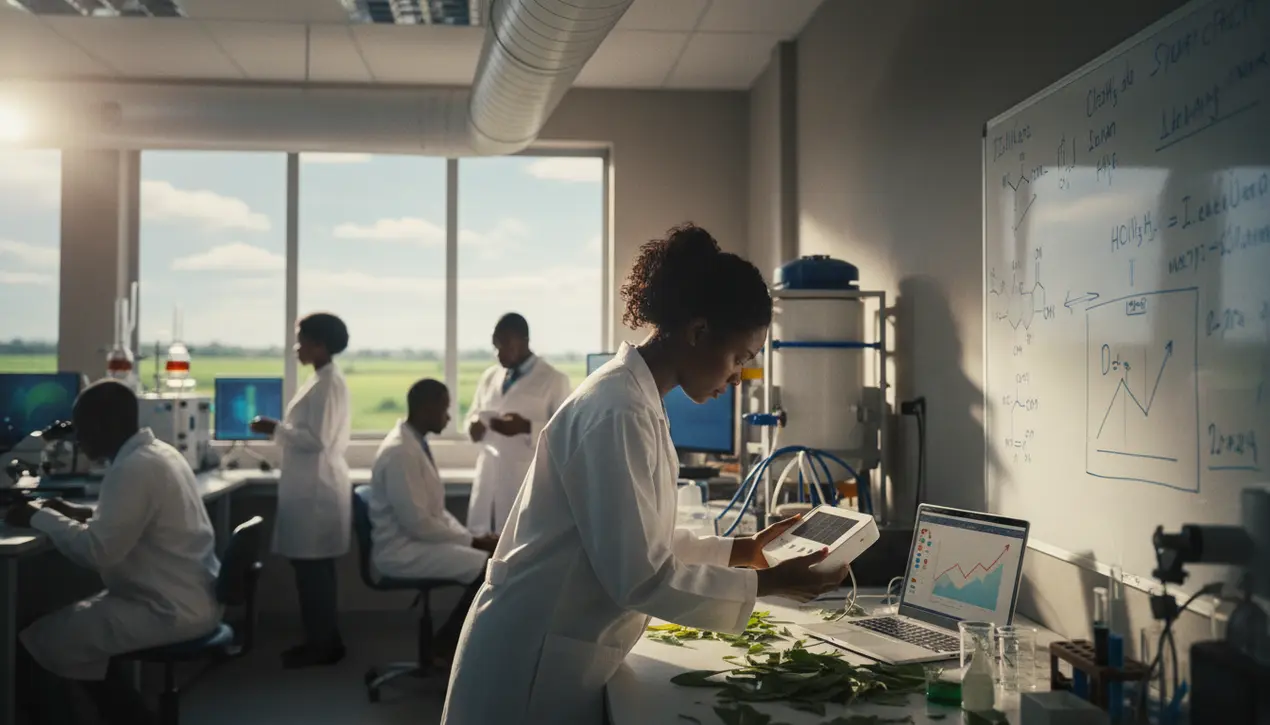
SciencebiologySynthetic Biology
The future of global health is at stake.
KE
Kevin White
2 hours ago7 min read1 comments
The grand challenges confronting global health and development—from feeding a warming planet to defeating antibiotic resistance—demand more than just funding and political will; they require genuine, paradigm-shifting breakthroughs. While the last century delivered monumental progress, from malaria control to revolutionary vaccines, the current worldwide retreat of foreign aid underscores that we cannot rest on past laurels.This year's innovators are the scientists, technologists, and entrepreneurs who grasp that radical new tools are non-negotiable. They are engineering microbes to remediate pollution, resurrecting ancient antibiotics with artificial intelligence, and constructing novel vaccine production platforms directly within the Global South.Their collective work serves as a vibrant proof of concept: the future of human well-being, our defense against pandemic threats, and the resilience of our food systems hinge on this creative, often audacious, power of innovation. Consider César de la Fuente at the University of Pennsylvania, whose Machine Biology Group is pioneering AI-driven antibiotic discovery.With a person in the US dying every 15 minutes from an untreatable infection, his team's development of the first computer-designed antibiotic with proven preclinical efficacy isn't just academically interesting—it's a lifeline. Their concept of 'molecular de-extinction,' which involved training an AI to identify and then synthesize antibiotic molecules from Neanderthals, has now evolved into the more powerful APEX model, mining genetic blueprints from everything from ancient penguins to long-vanished magnolia trees.This is critical work in an era where Big Pharma has largely abandoned antibiotic development due to poor financial returns, leaving a void that could see 10 million annual deaths from drug-resistant infections by 2050. Simultaneously, in the fields of central Kenya, Esther Wanjiru Kimani's solar-powered, AI-driven devices are scanning crop leaves for the faintest signs of disease, sending early-warning texts to farmers' phones.Her startup, Farmer Lifeline Technologies, born from watching her parents struggle with unpredictable harvests, has demonstrated a 30% reduction in crop losses and 40% yield gains in trials—a staggering impact in regions where such fluctuations determine a family's survival. Her recent Africa Prize for Engineering Innovation win signals a shift in recognizing that technology's most meaningful frontier isn't always in Silicon Valley.In India, Gagandeep Kang has spent decades building the translational systems that move vaccines from lab to clinic, most notably with Rotavac, the first Indian-developed vaccine to meet WHO standards, now deployed nationally and in countries like Ghana. Her career is a masterclass in building trust and rigorous clinical capacity, a lesson she reinforced during Covid-19 by publicly challenging the premature approval of Covaxin, warning that such moves hand ammunition to anti-science movements.Now at the Gates Foundation, she continues the unglamorous but vital work on enteric infections and diagnostics. Geoffrey Otim, through SynBio Africa, is championing synthetic biology on a continent historically sidelined by the biotech revolution.His work, which includes engineering microbial strains for sustainable aviation fuel, offers a path to break Africa's cycle of raw resource extraction by creating value through biological engineering. Similarly, Soham Sankaran's PopVax, an mRNA startup in Hyderabad, is developing broadly protective vaccines and a needle-free patch for flu, driven by a moral imperative to ensure the Global South controls its own intellectual property and pandemic response.Maxwell Scott's genetic reinvention of the sterile insect technique to combat flesh-eating screwworms, and Yibo Li's discovery of a heat-sensitive gene in rice that can be edited to maintain yield and quality as temperatures rise, represent the kind of foundational science that will define our capacity to adapt. These innovators are not merely solving discrete problems; they are building the foundational toolkit for a more resilient, equitable, and healthy future, proving that the most powerful solutions often emerge from the intersection of deep scientific insight and profound human need.
#featured
#global health
#antibiotic resistance
#AI discovery
#vaccine development
#crop protection
#synthetic biology
#climate resilience
Stay Informed. Act Smarter.
Get weekly highlights, major headlines, and expert insights — then put your knowledge to work in our live prediction markets.
Related News
Comments
Loading comments...
© 2025 Outpoll Service LTD. All rights reserved.